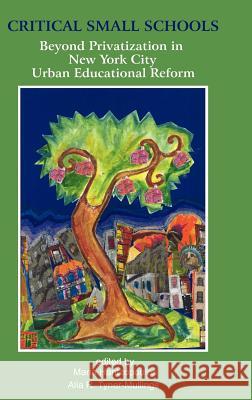Critical Small Schools: Beyond Privatization in New York City Urban Educational Reform (Hc) » książka
Critical Small Schools: Beyond Privatization in New York City Urban Educational Reform (Hc)
ISBN-13: 9781617356841 / Angielski / Twarda / 2012 / 250 str.
Critical Small Schools: Beyond Privatization in New York City Urban Educational Reform features the most current empirical research about the successes and challenges of the small schools movement and the implications of such for urban public educational policy. Situated in a climate of hierarchical reform, many of the principles of the original small schools movement-which are rooted in community participation, innovative pedagogies and assessment, and equity and social justice-have become obscured by an educational agenda that emphasizes top-down mandates and standards-based reform. With the increased popularity and the rapid proliferation of small schools, the emphasis on 'size only' has resulted in a bifurcation of the small schools movement; on one end are the small schools which have embraced the democratic, participatory, and self-governing nature of the original movement, while on the other end are schools that have simply reduced their size without rethinking school structures and practices. This book distinguishes the small schools featured and researched in this volume from schools that are simply small and labels them "critical small schools." By documenting the practices that take place in various critical small schools in New York City, we show how these schools have narrowed the achievement gap and increased graduation and college acceptance rates. Although smallness is an essential feature in the design of these schools, it is certainly not the only one and this volume illuminates the other elements that contribute to these schools' successes and shortcomings. Critical Small Schools also challenges the recent emphasis on charter schools as a panacea for urban educational reform. By featuring research about the inner workings of public schools, this volume challenges this new direction that steers successful school development away from public education. Moreover, as every site is fraught with some tension, Critical Small Schools not only offers glimpses into intellectually vibrant and democratic learning communities, but also acknowledges that these concepts are not static and necessitate continual reflection and renewal. At this pivotal moment in educational reform, this volume provides keen insight into the challenges and possibilities of the small schools movement and is indispensable for anyone interested in comprehensive public school reform.











